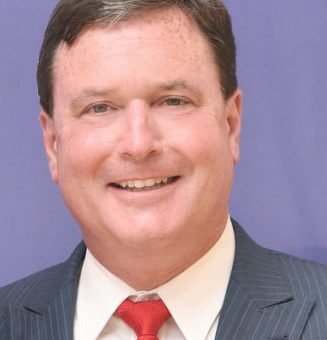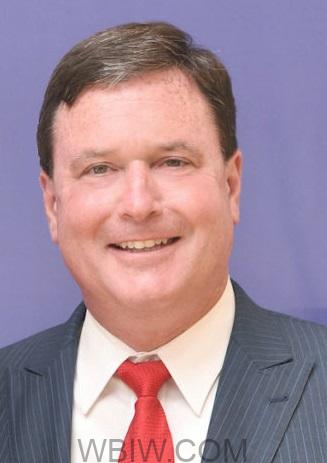
INDIANAPOLIS – Attorney General Todd Rokita responds to the complaint and will continue defending Indiana’s privacy & patient consent laws and putting Hoosier families first.

“Hoosiers, in the largest number on record, elected me Attorney General because they knew they were getting a passionate fighter who — like them — is beating back the culture of death, grievance, and transanity being pushed by radicals in workplaces, schools, media and government.
“This work certainly includes vindicating vulnerable children (our most precious gift) for having their privacy rights unlawfully violated — without consent — by healthcare providers to further their political agenda and their ‘bottom line.’ I won’t stop in this and my other work.
“These same radicals have fostered an environment that ‘cancels’ non-compliant citizens through intimidation as well as tactics that can weaponize our respected institutions. So, today, I am filing a response to the complaint also filed today that stemmed from grievances that mainly referenced media reports. It will be a public record once filed. Below are highlights from the forthcoming response. My response includes information unreported by the media. Beyond that, I remain responsible for everything my office and I do and say. And like everything, I see this situation as an opportunity to learn and improve for the next time.
“I am seeking re-election, and in the meantime, I will keep working for the people of Indiana, like protecting our 2nd Amendment, publishing the Parents’ Bill of Rights, enforcing the rule of law, handling more than 1,000 appeals cases filed by criminals each year and securing nearly $1 billion for Hoosier taxpayers.
“We will continue defending Indiana’s laws and ensure that licensed medical professionals and other healthcare providers are held accountable when they violate their patients’ privacy and fail to obtain consent.”
Highlights from Attorney General Rokita’s response to the disciplinary commission
1. No confidentiality should be required where Dr. Bernard:
a) violated her duties of confidentiality by disclosing her patient’s condition and treatment to the press at a political function, and
b) further breached her duty of confidentiality by publicly discussing patient information, including in an MSNBC interview on July 6, 2023.
2. Public statements and letters about seeking certain versions of Termination of Pregnancy Reports (TPRs) did not concern anything confidential under the statute referenced in the Commission’s Complaint because the version of TPRs sought:
- were not confidential,
- should have been made public already by agencies under the control of another elected official, and
- were not yet part of a licensing investigation.
3. Attorney General Rokita’s statements about “fight[ing] this to the end” and not “letting it go,” referred to getting to the bottom of a high-profile situation known worldwide, which was quickly evolving – literally by the hour at the time – and where many members of the public already condemned any review of the matter. Attorney General Rokita’s statements reflect his commitment to fulfill official duties regardless of political sensitivity and to keep the public informed. The comments were consistent with his duties as an elected official, who answers to the public. He kept that promise.
4. Dr. Bernard’s violations of the child’s privacy also triggered a non-confidential HIPAA investigation. The Attorney General’s statements (outlined in the Commission’s Complaint) addressed this non-confidential HIPAA investigation;
5. The confidentiality statute referenced in the Commission’s Complaint only prohibits discussion of “complaints and information pertaining to the complaints,” which Attorney General Rokita did not discuss;
6. The Attorney General, as an elected official who answers to the public, has a duty to keep the public informed of the Office’s actions and decisions. It is unclear if the confidentiality statute referenced in the Commission’s Complaint applies to the elected Attorney General himself since that statute is specifically limited in scope to employees of the Attorney General’s Office, who are not elected to their positions.
7. The Attorney General has a legal duty to keep the public informed about non-confidential matters.
8. The Attorney General ultimately answers to the public, which is fundamental to democracy.
9. The Attorney General is not responsible for the interest generated in the Bernard matter and any judicial burden that ensued. Dr. Bernard’s public disclosure of her patient’s private medical information at a political function was the primary cause of the public interest. Public interest in administrative and judicial processes is not prejudicial to the administration of justice. In fact, transparency of the judicial process is one of the hallmarks of the Rule of Law, as shown by the recent Appeals on Wheels in the Fieldhouse — a few blocks from the offices of the Disciplinary Commission and Supreme Court.
10. Attorney General Rokita at all times has cooperated with the Indiana Disciplinary Commission and continues to seek the proper administration of justice….
11. The abortion doctor described in the Commission’s complaint was found by the Indiana Medical Licensing Board to have unlawfully violated her patient’s privacy by making widely published statements about her patient’s private medical information at a political function. She was also fined the maximum amount by that board.



